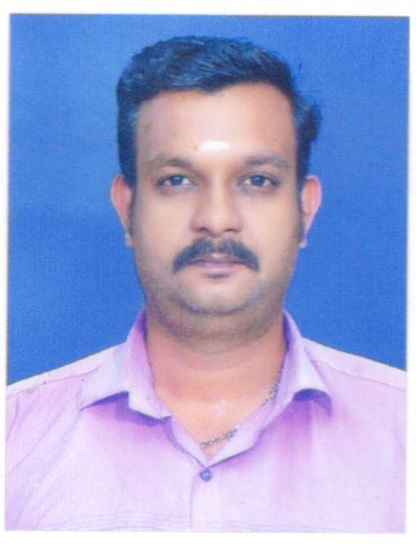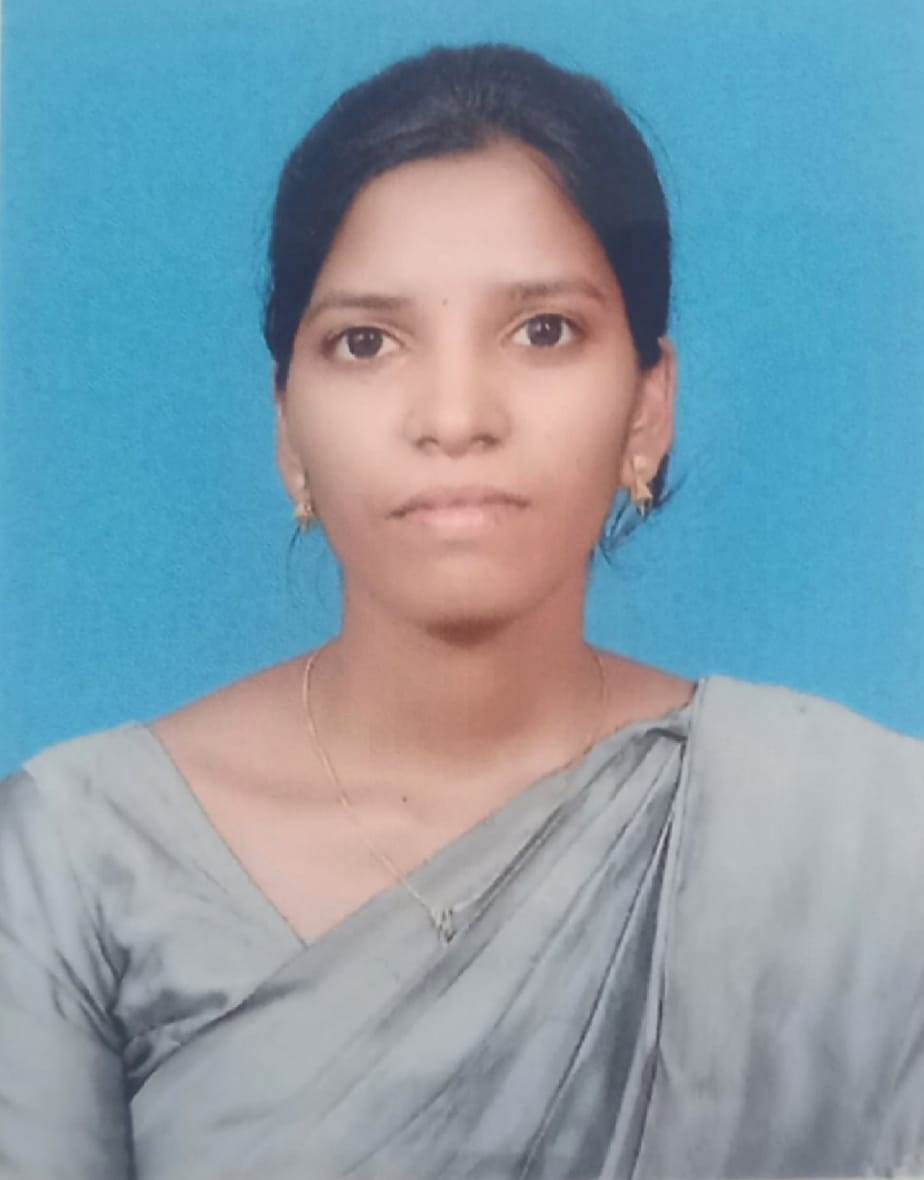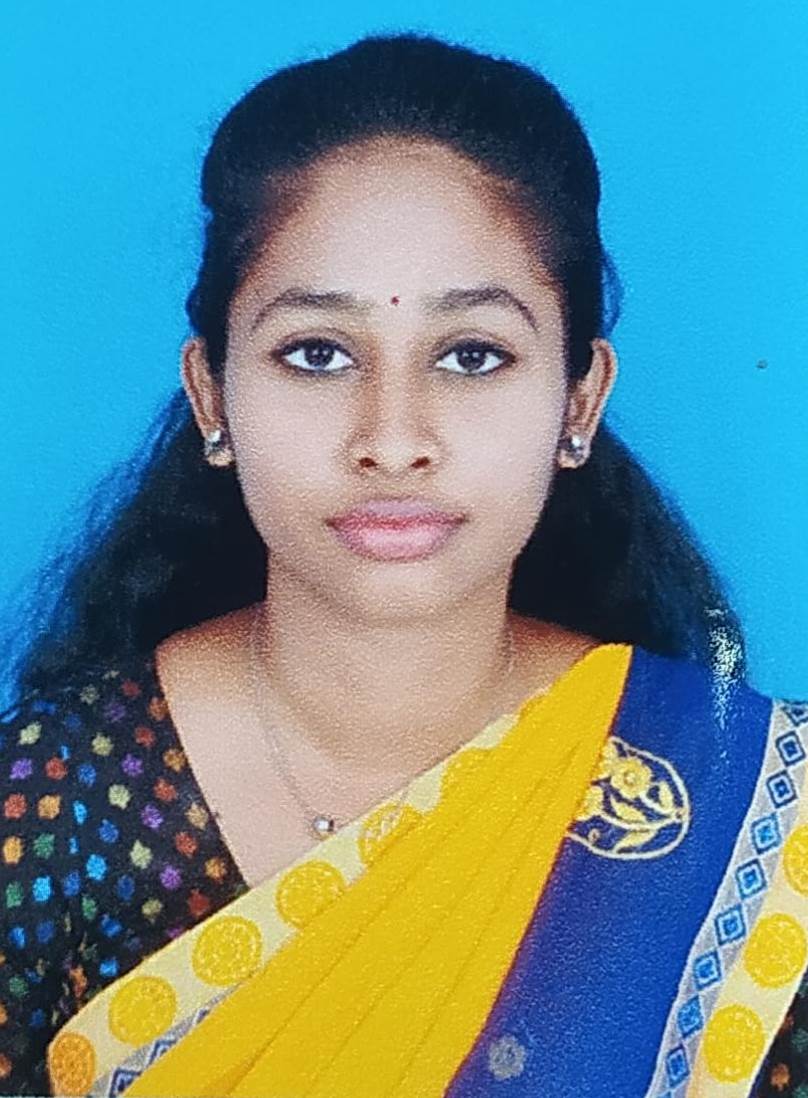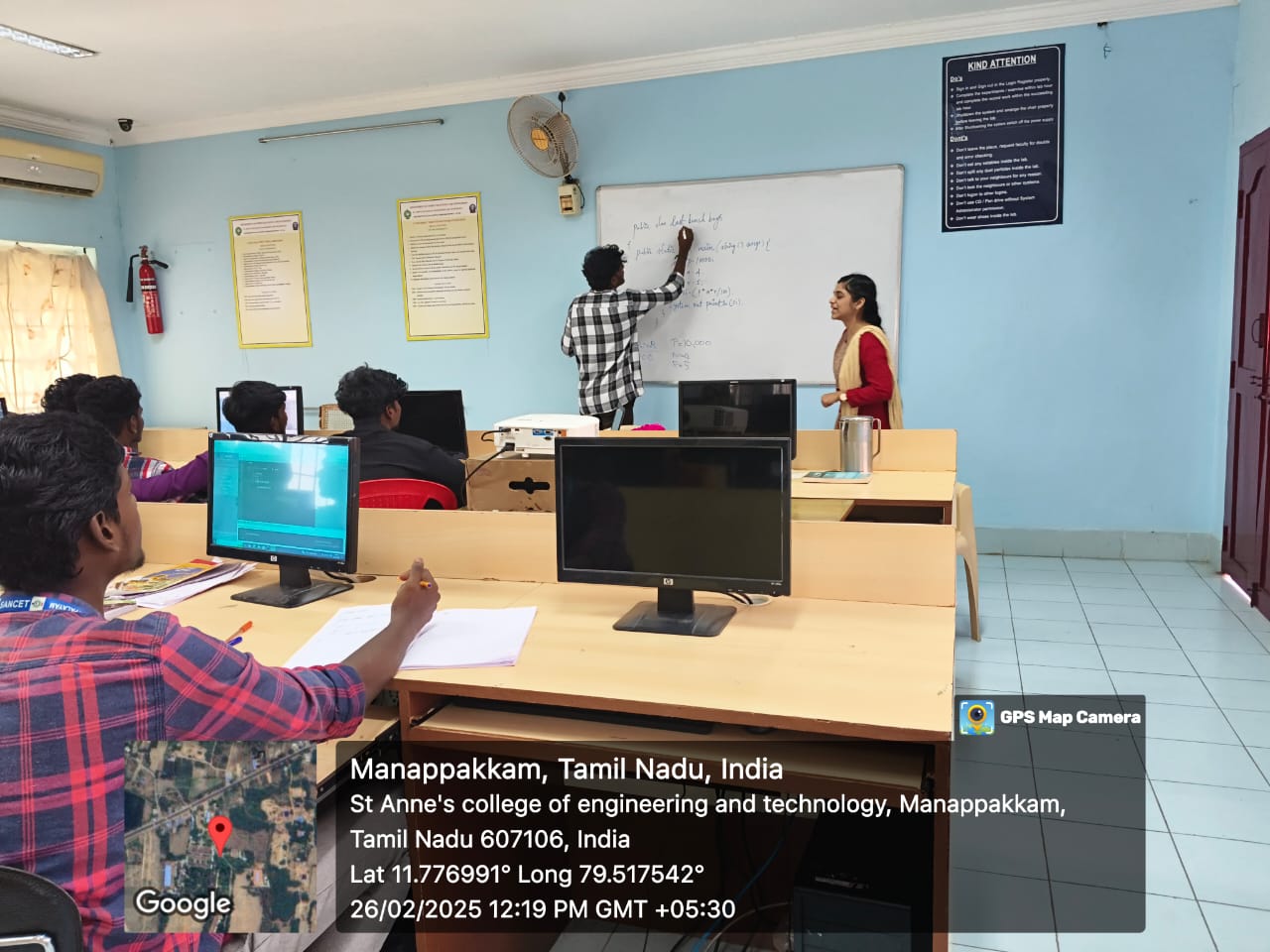

Computer Science and Engineering-AI and Machine Learning (B.E.AIML-AIML) is one of the popular courses among engineering aspirants which mainly focuses on computation, analysis of algorithms, programming languages, program design, software engineering, computer hardware, computer networks and problem solving skills. This program has roots in electrical, electronics and communication engineering, mathematics, and linguistics. Students study the design, development and analysis of software and hardware used to solve problems for various business, scientific and social contexts. Since computers solve most of the complex problems in a simplified way, it provides the sophistication to the world and touches the human lives in all the aspects such as education, transportation, entertainment, banking, mass communication, social media, hospital management, businesses, supply chain management, etc. Computer Science Engineering is inherently a interdisciplinary subject, it link to the disciplines including psychology, biology, mathematics, physics, education, art and music with the subjects of bioinformatics, electronics, operations research, theory of computation, help students to understand how computer science fits in to a wide range of domains in the world.
The vision of the Department is to offer up-to-date flexible programme which will allow the graduates to be competitive in the job market and to produce well-prepared computing professionals.
The mission of the Computer Science and Engineering Course is to educate the students in the principles and practices of Computer Science, preparing them for a lifetime of learning and careers in software design and development, computing systems technology and research.

| Name: | Mr. R. MANICKAVASAGAN |
| Designation: | Assistant Professor |
| Qualification: | M.E |
| Experience: | 1 years, 8 months, 18 days (in St. Anne's CET) |
| Specialisation: | Cloud Computing, Data Mining |

| Name: | Ms. T. GAYATHRI |
| Designation: | Assistant Professor |
| Qualification: | M.E |
| Experience: | 1 years, 2 months, 9 days (in St. Anne's CET) |
| Specialisation: | Computer Science and Engineering |

| Name: | Ms. S. ABINAYA |
| Designation: | Assistant Professor |
| Qualification: | M.E |
| Experience: | 1 years, 2 months, 9 days (in St. Anne's CET) |
| Specialisation: | Computer Science and Engineering |
| S.No. | Batch | Photo | Register No | Name | Placed | Company Name | Company Type | Salary(Per Annum) |
|---|
 This lab contains various compiler writing tools of LEX, YAAC can be used to implement
the different phases of compiler. It gives an idea about control and data flow analysis
of Programming Languages and how to implement the simple optimization techniques.
This lab contains various compiler writing tools of LEX, YAAC can be used to implement
the different phases of compiler. It gives an idea about control and data flow analysis
of Programming Languages and how to implement the simple optimization techniques.
 The Computer Graphics Lab provides the students a broad knowledge and understanding of
the basic concepts of Computer Graphics and the need of developing graphics
applications. It focuses on to create 3D graphical scenes and animations, to implement
image manipulation and enhancement. Byusing this lab effectively, the students can able
to acquire the knowledge and skillsof color generation, representation and
transformation of graphical images and pictures and algorithmic development of graphic
primitives. This will promote them to be good Graphics Designers.
The Computer Graphics Lab provides the students a broad knowledge and understanding of
the basic concepts of Computer Graphics and the need of developing graphics
applications. It focuses on to create 3D graphical scenes and animations, to implement
image manipulation and enhancement. Byusing this lab effectively, the students can able
to acquire the knowledge and skillsof color generation, representation and
transformation of graphical images and pictures and algorithmic development of graphic
primitives. This will promote them to be good Graphics Designers.
 There is another lab named Database Management System available in the Department. It is
spacious and well equipped with the latest Machines. A DBMS is Computer Application
software that provides a way to create, store, modify and manage the data. Database
Management and Administration is ahighly demanding area and always it provides a lot of
career related opportunities to the students. SQL, Oracle and DB2 are the software used
here to train the students.
There is another lab named Database Management System available in the Department. It is
spacious and well equipped with the latest Machines. A DBMS is Computer Application
software that provides a way to create, store, modify and manage the data. Database
Management and Administration is ahighly demanding area and always it provides a lot of
career related opportunities to the students. SQL, Oracle and DB2 are the software used
here to train the students.
 Operating systems Lab focuses on Unix Operating system. Students can learn shell
programming and can access programming language using system calls. This lab helps them
to understand about CPU scheduling, process creation and inter process communication.
The students can also analyze the various memory management schemes.
Operating systems Lab focuses on Unix Operating system. Students can learn shell
programming and can access programming language using system calls. This lab helps them
to understand about CPU scheduling, process creation and inter process communication.
The students can also analyze the various memory management schemes.
 The Network and Internet Programming lab has a cluster of workstations running dual boot
Operating system of Windows XP and UNIX for the exclusive use of students. The software
installed in this lab are J2SDK, J2E,JAVA, Net beans, Apache Tomcat, JAVA, Oracle 9i and
Network simulators NS2. The Networks lab enables and enriches the students’ to get
technical knowledge in computer communication and implementation of various protocols,
routing algorithms and simulation.
The Network and Internet Programming lab has a cluster of workstations running dual boot
Operating system of Windows XP and UNIX for the exclusive use of students. The software
installed in this lab are J2SDK, J2E,JAVA, Net beans, Apache Tomcat, JAVA, Oracle 9i and
Network simulators NS2. The Networks lab enables and enriches the students’ to get
technical knowledge in computer communication and implementation of various protocols,
routing algorithms and simulation.
 This lab serves as a guide for learning and implementing the data structure in an object
oriented programming language. It basically deals with memory management and various
other operations on data with algorithm analysis and design. The aim of the course is to
teach students the abstract data types and dynamic data structures.
This lab serves as a guide for learning and implementing the data structure in an object
oriented programming language. It basically deals with memory management and various
other operations on data with algorithm analysis and design. The aim of the course is to
teach students the abstract data types and dynamic data structures.
 This lab aims at providing students the knowledge about the Office Suite and Red Hat
Linux Operating System Environment. The students are experts in preparing documentation,
presentation and worksheets by using this Lab.
This lab aims at providing students the knowledge about the Office Suite and Red Hat
Linux Operating System Environment. The students are experts in preparing documentation,
presentation and worksheets by using this Lab.
| S.No | Description of Event |
|---|---|
| S.No | Description of Event |

AIML department has an active engineering Association functioning. technical seminar and national level symposiums are conducted to give ample opportunities to budding engineers to show their talents.Students are enriched with technical knowledge to be competitive in the employment sector

Title: VAC ON ADVANCE JAVA PROGRAMMING
Description:
Department of Computer and Science Engineering in association with COSTA had organized a five days Value Added course on " ADVANCED JAVA PROGRAMMING” at computer Laboratory 2 from 24.02.2025 to 28.02.2025 Ms. Priyavarshini , Mediawave Digital Private Limited, Pondicherry and his trainer team was the Resource Person and the event started with a inauguration in the presence of Respected vice Principal Rev Sr. A. Punitha jilt. Our second year student Ms. A. Praveena gave the welcome address to the Resource Person and all the dignitaries on the dais. Our second year student Ms. Sankari introduced the chief guest and all the respected dignitaries them.
The course session was handled by Ms. Priyavarshini, she provided an overview of Advanced Java, explaining how they working.
In the Day 2, Participants were given program to practice the concepts they had learned. They were guided step-by-step through the process of setting up the software and writing the necessary code to learn java programs. This hands-on experience allowed them to grasp the connection between software and programming languages.
In the Day 3, Attendees were taught how to write a own java code. They learned about the various oops concepts, and how to troubleshoot any errors that might occur. After uploading, participants executed the programs to observe the results. They followed step-by-step instructions were given.
In day 4 and day 5 the students discussed Multithreading and JDBC. The students learned about JDBC drivers , Exception Handling . Illustrating how basic concepts could be expanded into complex projects.
The value-added course was concluded with a valedictory function presided over by Ms. P. Vindhya. The event coordinator, Ms V. Keerthana, AP/CSE, welcomes the gathering and thanks the management for giving permission for the arrangement of such a valuable program, as well as the trainers for providing our students with practical knowledge in JAVA in our core areas. The session was followed by a feedback session. Overall, the workshop was so enlightening, and it must have sparked something within students to get innovative ideas and get involved in real-time projects.
| S.No | Description of Event | S.No | Description of Event |
|---|
| Name: | ABINAYAA R |
| Register No: | 422123148002 |
| CGPA: | 9.00 |
| Rank: | 1 |
| Batch: | 2023-2027 |
| Name: | BHUVANESHWARI M G |
| Register No: | 422123148013 |
| CGPA: | 8.50 |
| Rank: | 2 |
| Batch: | 2023-2027 |
| Name: | BAVYA B |
| Register No: | 422123148011 |
| CGPA: | 8.32 |
| Rank: | 3 |
| Batch: | 2023-2027 |